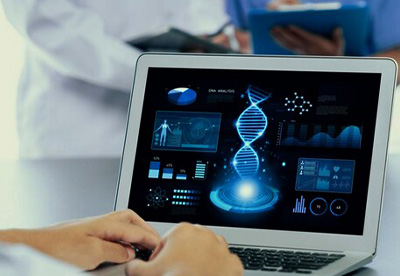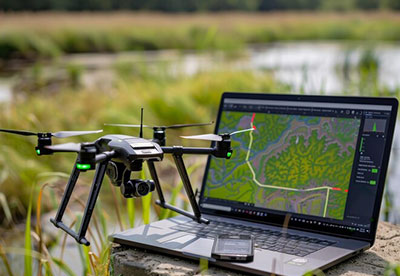Artificial Intelligence (AI) is ushering in an era of unprecedented growth and innovation in the medical and pharmaceutical industry. From drug discovery to personalized medicine, AI is transforming the way we approach healthcare.
Tech like Cloud Computing and Artificial intelligence have changed how modern healthcare is more accessible to everyone. Let’s explore how Artificial Intelligence is propelling the life sciences and medical industry to new heights, fostering exponential growth and groundbreaking advancements.
1. Accelerating Drug Discovery and Development
One of the most significant contributions of AI to the life sciences industry is its role in accelerating drug discovery and development. Traditional drug discovery processes are time-consuming and resource-intensive, but AI algorithms can analyze vast datasets to identify potential drug candidates more efficiently. Machine learning models predict drug-target interactions, analyze biological pathways, and prioritize compounds for further investigation. This not only expedites the drug development pipeline but also reduces costs, enabling pharmaceutical companies to bring life-saving treatments to market faster.
2. Personalized Medicine and Treatment Plans
AI is at the forefront of the shift towards personalized medicine, where treatments are tailored to individual patients based on their genetic makeup, lifestyle, and environmental factors. Machine learning algorithms analyze patient data, including genomics, electronic health records, and real-time monitoring data, to identify personalized treatment plans. This level of customization enhances treatment efficacy, minimizes side effects, and improves patient outcomes. AI-driven precision medicine is reshaping the landscape of healthcare, offering targeted therapies for conditions ranging from cancer to rare genetic disorders.
3. Predictive Analytics for Disease Prevention
In the realm of public health, AI’s predictive analytics capabilities are instrumental in disease prevention and early intervention. Machine learning models analyze epidemiological data, environmental factors, and population health trends to identify potential disease outbreaks. This proactive approach enables healthcare providers and authorities to implement preventive measures, allocate resources strategically, and minimize the impact of infectious diseases. AI’s ability to predict disease patterns empowers healthcare professionals to stay ahead of public health challenges, ultimately saving lives and resources.
4. Enhanced Diagnostics and Imaging Analysis
AI is transforming medical diagnostics by significantly improving the accuracy and efficiency of image analysis. Machine learning algorithms trained on vast datasets can detect subtle patterns and anomalies in medical images, such as X-rays, MRIs, and CT scans. This leads to earlier and more accurate diagnoses of conditions like cancer, cardiovascular diseases, and neurological disorders. AI-powered diagnostic tools not only reduce the likelihood of misdiagnoses but also expedite the interpretation of complex medical imaging, enabling healthcare providers to make more informed decisions.
5. Streamlining Clinical Trials and Research
Clinical trials are a critical component of medical research, and AI is streamlining the entire process. Machine learning algorithms assist with patient recruitment by identifying suitable candidates based on diverse criteria. AI also optimizes trial design, helping researchers define more targeted protocols and endpoints. This efficiency in trial management accelerates the research timeline and reduces costs, allowing innovations to reach patients faster. AI’s contribution to clinical research is making it more accessible, cost-effective, and inclusive, fostering a culture of continuous medical advancement.
6. Drug Repurposing and Combination Therapies
AI is reshaping drug discovery not only by expediting the identification of new compounds but also by repurposing existing drugs for new therapeutic uses. Machine learning models analyze vast biomedical databases, scientific literature, and clinical trial data to identify potential candidates for drug repurposing. Additionally, AI facilitates the exploration of combination therapies, identifying synergies between drugs for enhanced treatment outcomes. This approach holds immense potential for rapidly advancing treatment options and addressing unmet medical needs.
Conclusion
The integration of Artificial Intelligence into the life sciences and medical industry marks a transformative era, where innovation knows no bounds. From revolutionizing drug discovery and development to enabling personalized medicine and predictive analytics, AI is propelling the industry into uncharted territory. At Canopus Infosystems, our experts can help you leverage AI and achieve the future of life sciences faster.
As we witness the exponential growth and groundbreaking advancements fueled by AI, it becomes clear that the intersection of technology and healthcare is not just a paradigm shift but a revolution that holds the promise of healthier, more personalized, and more accessible healthcare for all. The future of the life sciences and medical industry is undeniably intertwined with the limitless possibilities that Artificial Intelligence unfolds.
3 mins read


















